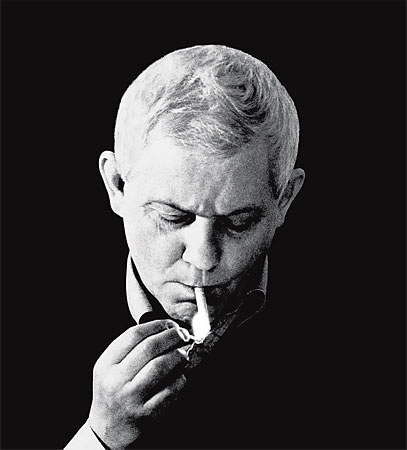Poetry Review: Zbigniew Herbert's "Elegy for the Departure"
 Polish poet Zbigniew Herbert (1924-1998) is perhaps best known in America for his poem “Report from the Besieged City,” and for his ability to demythologize time-worn tales as in “Why the Classics” or “Daedalus and Icarus.”In 1999 Ecco Press published Elegy for the Departure, a collection of poems translated into English for the first time. The collection includes poems from Herbert’s 1990 book of the same title as well as poems from earlier volumes. The book is arranged in roughly chronological order from 1950 to 1990. Some of the poems, especially in the first section, display Herbert’s attention to myth, his political voice: “—how to lead / people away from the ruins / how to lead / the chorus from poems—”. Much of the collection, though, turns to a more personal voice. He speaks often of his childhood: “home was the telescope of childhood / the skin of emotion / a sister’s cheek / branch of a tree.” In the later poems of the book he is ruminative, looking back upon his life: “I thought then / that before the deluge it was necessary / to save / one / thing / small / warm / faithful.” The language throughout the collection is lively, whimsical when you least expect it. Section three is made of clever prose poems that read like abbreviated fables: funny and sad all at once. Each is titled with a single noun, which the poem goes on to offer a definition of. “Drunkards” are people who “drink at one gulp, bottoms up,” who spend their time looking up through the necks of their bottles, but maybe “if they had stronger heads and more taste, they would be astronomers.” We also hear from a Wolf caught in one of Aesop’s fables. The wolf is terrorizing the sheep, but he admits that, “Were it not for Aesop, we would sit on our hind legs and gaze at the sunset. I like to do this very much.”I am continually amazed in reading Herbert’s poems—both long and short—at his ability to move the reader forward in the poem without any use of punctuation. This is a style that is certainly abused by many of us amateur writers so it is refreshing to see it done so well. I’ll leave you with my favorite lines from the book, which demonstrate the energy and rhythm of Herbert’s writing. From “The Troubles of a Little Creator”:A small puppy in vast empty spacein a world not yet readyI worked from the beginningwearing my arm to the quickthe earth uncertain as a dandelion puff ballI pressed it with my pilgrim’s footwith a double blow of my eyesI fixed the skyand with a mad fantasyimagined the color blue--Laura Stephenson, Editor-in-Chief
Polish poet Zbigniew Herbert (1924-1998) is perhaps best known in America for his poem “Report from the Besieged City,” and for his ability to demythologize time-worn tales as in “Why the Classics” or “Daedalus and Icarus.”In 1999 Ecco Press published Elegy for the Departure, a collection of poems translated into English for the first time. The collection includes poems from Herbert’s 1990 book of the same title as well as poems from earlier volumes. The book is arranged in roughly chronological order from 1950 to 1990. Some of the poems, especially in the first section, display Herbert’s attention to myth, his political voice: “—how to lead / people away from the ruins / how to lead / the chorus from poems—”. Much of the collection, though, turns to a more personal voice. He speaks often of his childhood: “home was the telescope of childhood / the skin of emotion / a sister’s cheek / branch of a tree.” In the later poems of the book he is ruminative, looking back upon his life: “I thought then / that before the deluge it was necessary / to save / one / thing / small / warm / faithful.” The language throughout the collection is lively, whimsical when you least expect it. Section three is made of clever prose poems that read like abbreviated fables: funny and sad all at once. Each is titled with a single noun, which the poem goes on to offer a definition of. “Drunkards” are people who “drink at one gulp, bottoms up,” who spend their time looking up through the necks of their bottles, but maybe “if they had stronger heads and more taste, they would be astronomers.” We also hear from a Wolf caught in one of Aesop’s fables. The wolf is terrorizing the sheep, but he admits that, “Were it not for Aesop, we would sit on our hind legs and gaze at the sunset. I like to do this very much.”I am continually amazed in reading Herbert’s poems—both long and short—at his ability to move the reader forward in the poem without any use of punctuation. This is a style that is certainly abused by many of us amateur writers so it is refreshing to see it done so well. I’ll leave you with my favorite lines from the book, which demonstrate the energy and rhythm of Herbert’s writing. From “The Troubles of a Little Creator”:A small puppy in vast empty spacein a world not yet readyI worked from the beginningwearing my arm to the quickthe earth uncertain as a dandelion puff ballI pressed it with my pilgrim’s footwith a double blow of my eyesI fixed the skyand with a mad fantasyimagined the color blue--Laura Stephenson, Editor-in-Chief


